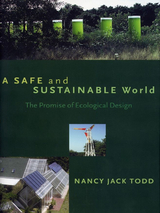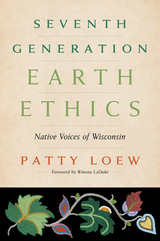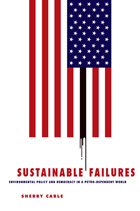7 start with S start with S

In the late sixties, as the world was waking to a need for Earth Day, a pioneering group founded a small non-profit research and education organization they called the New Alchemy Institute. Their aim was to explore the ways a safer and more sustainable world could be created. In the ensuing years, along with scientists, agriculturists, and a host of enthusiastic amateurs and friends, they set out to discover new ways that basic human needs—in the form of food, shelter, and energy—could be met. A Safe and Sustainable World is the story of that journey, as it was and as it continues to be.
The dynamics and the resilience of the living world were the Institute's model and the inspiration for their research. Central to their efforts then and now is, along with science, a spiritual quest for a more harmonious human role in our planet's future. The results of this work have now entered mainstream science through the emerging discipline of ecological design.
Nancy Jack Todd not only relates a fascinating journey from lofty ideals through the hard realities encountered in learning how to actually grow food, harness the energy of the sun and wind, and design green architecture. She also introduces us to some of the heroes and mentors who played a vital role in those efforts as well, from Buckminster Fuller to Margaret Mead. The early work of the Institute culminated in the design and building of two bioshelters—large greenhouse-like independent structures called Arks, that provided the setting for much of the research to follow.
Successfully proving through the Institute's designs and investigations that basic land sustainability is achievable, John Todd and the author founded a second non-profit research group, Ocean Arks International. Here they applied the New Alchemy's natural systems thinking to restoring polluted waters with the invention and implementation of biologically based living technologies called Ecomachines and Pond and Lake Restorers. A Safe and Sustainable World demonstrates what has and can be done--it also looks to what must be done to integrate human ingenuity and the four billion or so years of evolutionary intelligence of the natural world into healthy, decentralized, locally dreams hard won--and hope.



The Native people whose lives are depicted in Seventh Generation Earth Ethics understood the cultural gravity that kept their people rooted to their ancestral lands and acted in ways that ensured the growth and success of future generations. In this way they honor the Ojibwe Seventh Generation philosophy, which cautions decision makers to consider how their actions will affect seven generations in the future—some 240 years.

Beginning with an introduction to various philosophies and perspectives, the Sourcebook examines major elements of the environment and selected case studies of human alteration of our surroundings. The essential references in each field are carefully presented, and directions are given for examining more advanced and specialized works. Appendixes on selected periodicals, the latest relevant federal legislation, and environmental organizations point to further areas of investigation. To maintain its value in this volatile area, this indispensable work will be periodically revised and updated.

Environmental policies fail in conspicuous and egregious ways to sustain the natural resource base and protect citizens from production-generated risky exposures. In her engaging study, Sustainable Failures, Sherry Cable asks, why does environmental policy seem to be a contributing cause rather than a partial solution to environmental problems?
Melding a biophysical science perspective of environmental processes with sociological insights into human behavior, Cable examines the people, policies, and issues of petrochemical dependence and broader environment questions. She insists that our present policies around the manufacture and use of petroleum products violate rudimentary ecological principles—and do so in complicated ways.
Sustainable Failures is a blistering wake-up call to what is at stake not only regarding the failure of policy outcomes and grievous natural resource depletion and pollution, but also concerning democracy and ecological survival, and eventually, potentially, the existence of our species.

Environmental issues, once the benign hobby of the few, have become everybody's urgent concern--progressing from the peaceful vibes of the first Earth Day to the political tumult of the "green possibility." As we surpass the end of the twentieth century and as these issues become more pressing, John Young's tour de force is an especially welcome and timely assessment of the history of the environmental movement--and a call to arms for a new and effective attack on the problems.
Young maintains that only a powerful synthesis of political, economic, and moral ideologies--a unification he terms postenvironmentalism--will move world societies into a relation to the environment that maintains the best democratic values. He describes many of the movements and strategies that have appeared over the last three decades: realos, reds, greens, left and right ecologists, eco-feminists, humanists, and pragmatists. Now even the most radical environmentalists must recognize the reality of questions about equity and poverty, technology and energy, aid and trade between wealthy and impoverished countries, and the validity of the ways people consider them. As the process of trial and error this book describes continues, Young offers--in a thoughtful and undogmatic manner--an alternative perspective that is essential reading for all who care about our world.
READERS
Browse our collection.
PUBLISHERS
See BiblioVault's publisher services.
STUDENT SERVICES
Files for college accessibility offices.
UChicago Accessibility Resources
home | accessibility | search | about | contact us
BiblioVault ® 2001 - 2024
The University of Chicago Press









